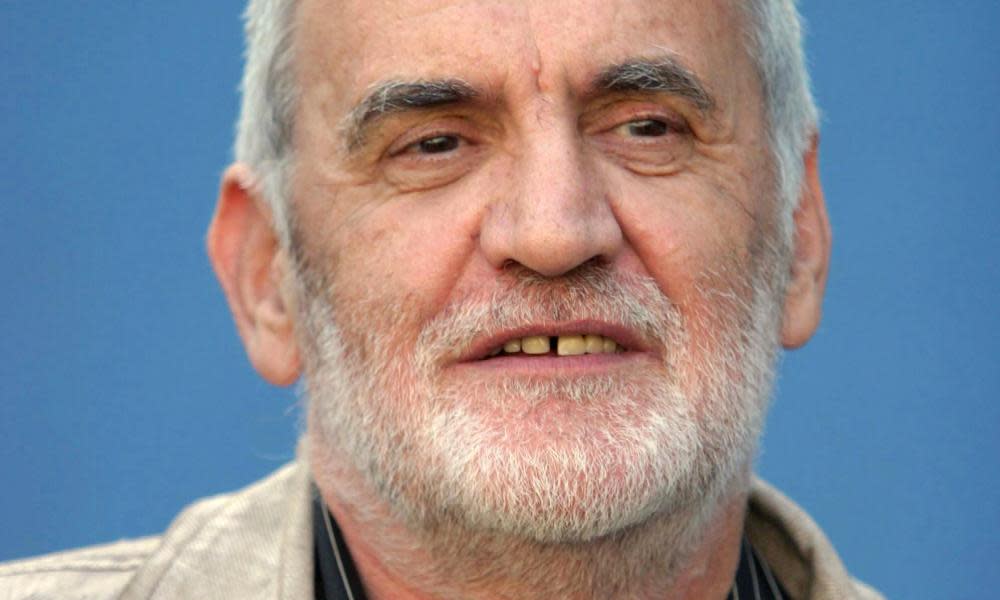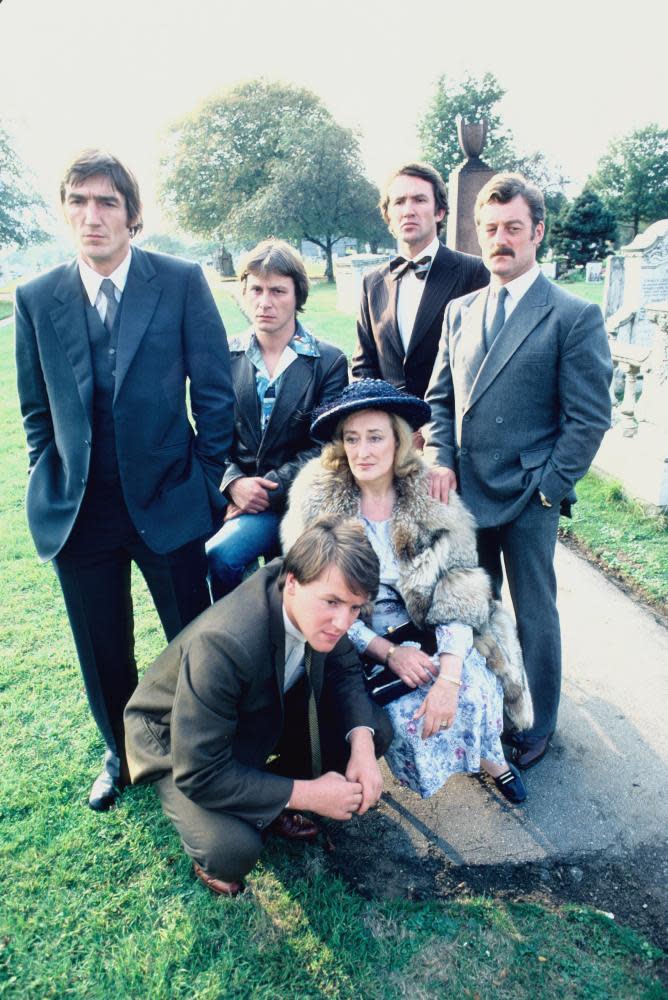Trevor Preston obituary

A tough, working-class upbringing and research in the haunts of London’s gangland bosses informed the gritty, hard-hitting drama that the writer Trevor Preston brought to television in two standout series, Out (1978) and Fox (1980). Preston, who has died aged 79, was given his own programmes after writing episodes of The Sweeney (1975-80), which starred John Thaw and Dennis Waterman as officers with the Metropolitan Police Flying Squad, tackling robbery and violent crime.
If Z-Cars had signalled a switch away from the homely image of the police depicted in Dixon of Dock Green, The Sweeney left no doubt about brutality and bending of the law within the force. Preston wrote the first episode of the series, after a pilot scripted by its creator, Ian Kennedy Martin. The programme was the first popular success from Euston Films, set up by the ITV company Thames Television to make filmed drama for the small screen.
Euston Films’ practice of shooting fast-moving action on location with 16mm cameras to give a sense of realism made it the perfect producer for Preston’s own creation for Thames, Out, in which Tom Bell starred as Frank Ross, a bank robber out of prison after eight years and obsessed with finding the informer responsible for his incarceration.
Preston gave his characters a psychological complexity rare on television at the time and fashioned the avenger as immaculately turned-out in his three-piece suit and with a stillness and intensity that froze all who came into contact with him. The director, Jim Goddard, served the writer well over the six-part serial, reflecting that intensity with techniques such as stylised flashbacks of the robbery.
Goddard was at the helm again – and the criminals were the lead characters once more – when Euston Films made Fox, Preston’s series about a south London family with gangland connections that the director regarded as a “television novel” because of its structure. Peter Vaughan was the patriarch, Billy Fox, held in awe by his neighbours, with Bernard Hill, Derrick O’Connor, Larry Lamb, Eamon Boland and Ray Winstone as his five sons. The underlying theme was family loyalty and Preston simply described it as “The Forsyte Saga in 13 episodes about somebody who lives in Clapham”. It won him Bafta’s 1981 television writers’ award.
Although he continued to write for television, Preston’s career was punctuated by bouts of manic depression. They had begun when he was eight years old and either inspired his writing – when he transferred his anger and visions to the printed page – or laid him low.
He was born in Erith, Kent, the second of four children of Phyllis (nee Parker), a teacher, and Robert Preston, who fought in both world wars. When his father returned to civilian life, Preston recalled sitting alongside him on a horse and cart making deliveries for a bakery. He also played among the ruins of bombed buildings and admitted to being “a bit of a tearaway”.

He read crime novels, played the guitar in a skiffle group, enjoyed opera and jazz, and gained a love of films through visits to the Regal cinema in Bexleyheath. On leaving Erith grammar school, he attended Gravesend and Beckenham art schools. He completed only half of his national service in the RAF because of his health issues, then studied at the Royal College of Art in London.
Preston’s screen career began in 1963 when the ITV arts magazine Tempo invited the RCA’s newly formed film and television design department to produce an episode. He directed The Medium Sized Cage, the story of a disaffected sculpture student moving out of a bedsit and recalling in flashback his time there. Between 1965 and 1967, Preston worked on Tempo as a researcher.
He switched to children’s drama with adaptations of The Lion, the Witch and the Wardrobe (1967), The Tyrant King (1968), directed by Mike Hodges, and James and the Giant Peach (1976), as well as contributing scripts to series such as the first run of Freewheelers (1968) and The Incredible Adventures of Professor Branestawm (1969). Preston also created Ace of Wands (1970-72), a fantasy series that he described as a children’s crime drama. It featured Tarot, a super-sleuth magician, and featured psychedelic opening and closing credit sequences.
By then, he had started writing for peak-time crime series: Callan in 1969, Special Branch between 1969 and 1973, and Public Eye in 1971. After the success of Out and Fox, he scripted a 1984 episode of Minder but found producers no longer receptive to his ideas for series, so he wrote single dramas such as Slayground (1989), Children Crossing (1990) and The Negotiator (1994) before adapting the novels Thicker Than Water (1993), Dylan Jones’s story about identical twins, and Little White Lies (1998), Elizabeth McGregor’s psychological thriller.
His 1987 film Billy the Kid and the Green Baize Vampire, directed by Alan Clarke, developed a cult following and was described by the British Film Institute as “the only vampire snooker musical ever made”. Later, Preston teamed up again with Hodges to make the 2003 film I’ll Sleep When I’m Dead.
He drew on his experience of manic depression to write Flaw in the Motor, Dust in the Blood, a 2008 BBC Radio 4 play about life with bipolar disorder. In recent years, he suffered from cancer and acute arthritis but continued writing for radio and painting.
His 1960 marriage to Nettie Bignell ended in divorce.
Preston is survived by his partner of 27 years, Susie Elliott, and the daughter, Isca, and son, Julian, of his marriage.
• Trevor Robert Preston, writer, born 12 July 1938; died 29 April 2018

 Yahoo News
Yahoo News 
